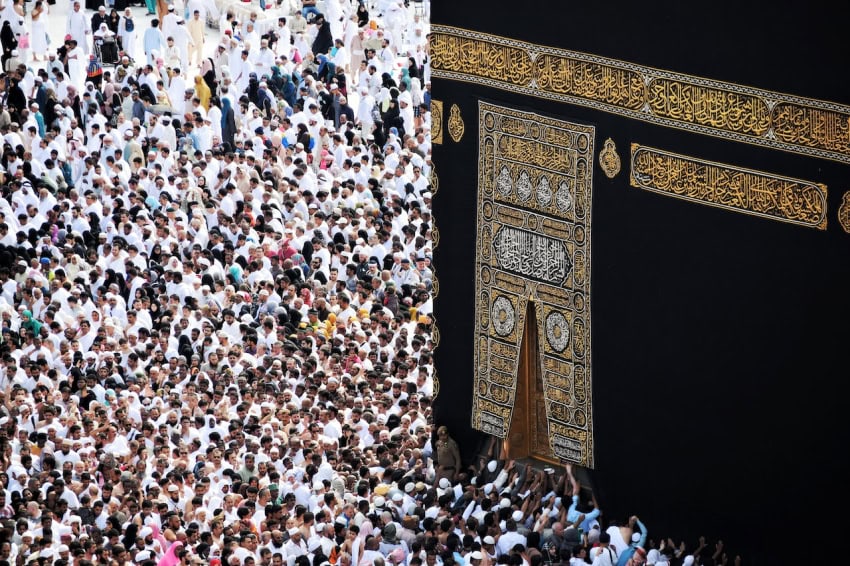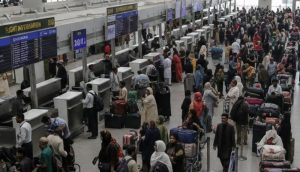RIYADH – The duration of the 90-day visa issued to perform Umrah starts from the holder’s entry into Saudi Arabia, the kingdom’s Ministry of Hajj and Umrah has confirmed.
“The visa starts from the date of entering the Kingdom of Saudi Arabia,” the ministry said on Twitter, while stressing the importance of abiding by the visa validity duration.
The response has clarified the queries of scores of Muslims who were confused whether the 90 days period begins on the date of issuance of visa or the day they enter the holy land.
Saudi Arabia has digitalized the visa system largely and for performing Umrah, reservations are made through the Nusuk app, which enables Muslims to obtain the necessary permits as well as to book related packages electronically.
Saudi authorities have also made it clear that obtaining an electronic permit continues to be mandatory for Umrah even after the completion of Ramazan. There are certain conditions for getting the permit including that the applicant must not be infected with COVID-19 or have come in contact with its patients.
Millions of Muslims, who are otherwise unable to perform Hajj proceed to the holy land to perform Umrah. Under the fresh guidelines by the kingdom, Muslims holding different types of entry visas such as the personal, visit and tourism visas are allowed to undertake Umrah and visit Al Rawda Al
Sharifa, where the tomb of the Prophet Mohammad (Peace Be Upon Him) is located.
Saudi authorities have also extended the Umrah visa duration from 30 days to 90 and have allowed holders to enter the kingdom via all land, air and sea outlets and leave from any airport.
Saudi Arabia is completing the Umrah season after which it would finalize the arrangements for annual Hajj. This is the first time – after the Covid travel restrictions have been lifted – that the kingdom would welcome around 2.3 million pilgrims for Hajj. Around one million people joined the 2022 Hajj season and only those in age bracket 18 to 65 who were fully vaccinated or immunised against the virus and did not suffer from chronic diseases were allowed to visit the kingdom.














